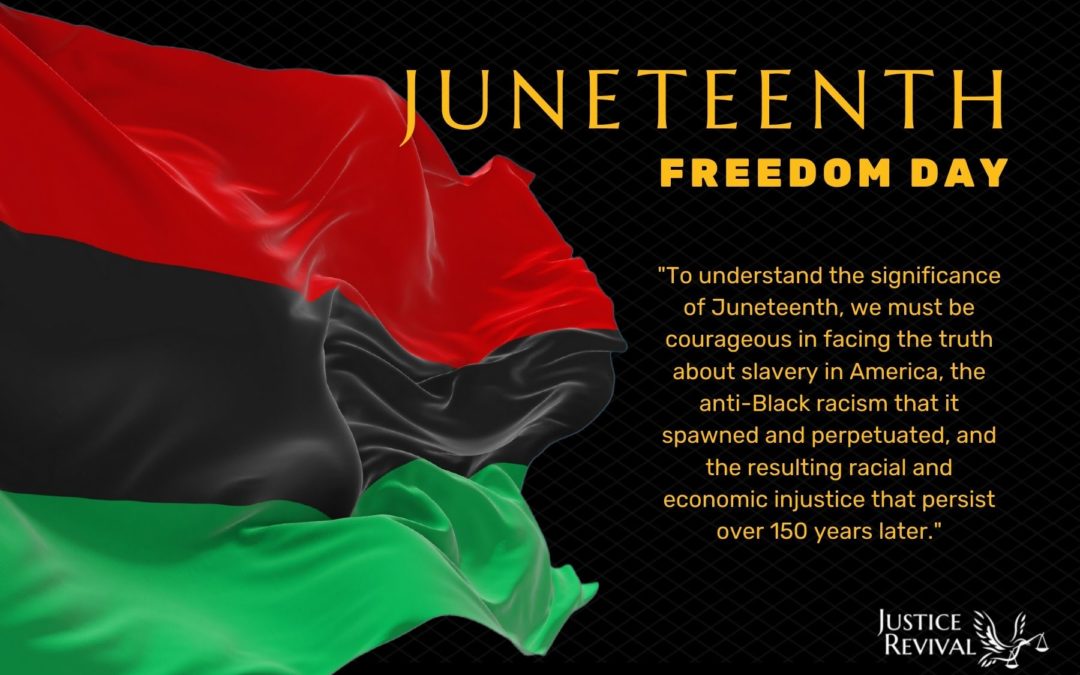This Sunday, our nation commemorates Juneteenth, in honor of the redemptive day in 1865 when enslaved people across the state of Texas were finally liberated–two and a half years after President Lincoln signed the Emancipation Proclamation. Even after the Confederate defeat in America’s bloody Civil War, slaveholders resisted the clarion call to free their fellow human beings from bondage.
This important day offers an occasion to celebrate the long-fought demise of chattel slavery–that violent, merciless enterprise that caused profound, untold human suffering and anguish. To understand the significance of Juneteenth, we must be courageous in facing the truth about slavery in America, the anti-Black racism that it spawned and perpetuated, and the resulting racial and economic injustice that persist over 150 years later.
“All human beings are born free and equal in dignity and rights,… and should act toward one another in a spirit of brotherhood.” The Universal Declaration of Human Rights begins with this inspired proclamation of freedom, dignity, and equality. The United States has long espoused these democratic principles–and yet our struggle to live more fully into them remains as urgent and serious as ever.
As my colleague Derick Dailey has explained before, “Juneteenth teaches us that in the struggle for justice and liberation, there will be resistance.” We see that resistance today, in the struggle to secure needed voting rights legislation, or to convene a commission to study the idea of reparations. We see that resistance in the horrific racial violence on display in Buffalo last month, and the racially weighted mass incarceration, police force, and lethal punishment meted out by a system still in dire need of reform.
As people of faith who worship a Creator who lovingly crafted humankind in the divine image, as people who hear the prophetic call to champion justice, as followers of the Apostle Paul, who told us that in Christ there can be no distinction between slave and free (Gal. 6:28), we have a moral duty to recommit to the liberation of our neighbors and the restoration of human dignity denigrated by the evil of slavery.
As Christians dedicated to welcoming the Kingdom of Heaven in our midst, we are called to mark this holiday by promoting the sacredness of justice and freedom. If we are to walk beside our Savior – who died for each of us in all our unique and beautiful diversity – we must take up His cross as we struggle for racial justice.
On this day of celebration and remembrance, I hope you’ll join me in leaning into the difficult truth of our history, lamenting the sin of racism, celebrating liberation, and recommitting in prayer toward a more just and equal future for this nation.
